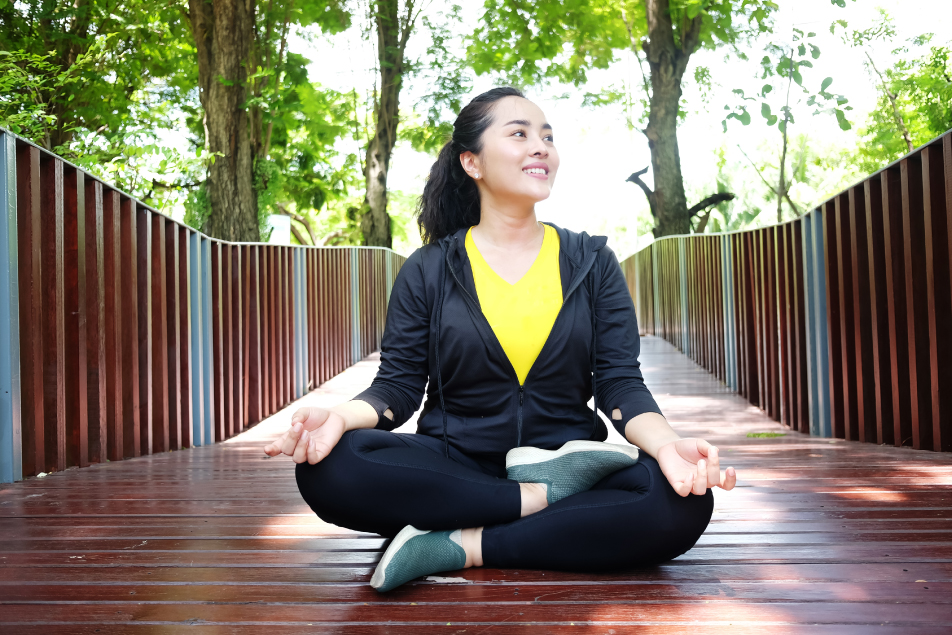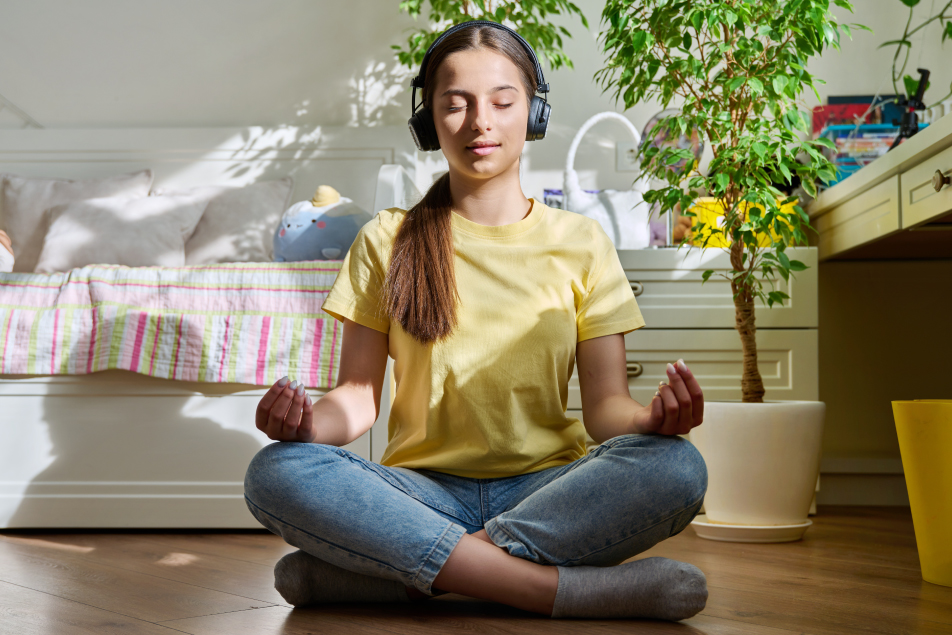Anxiety and depression are on the rise in the busy world that is being characterized by stress as a close companion. It can be work pressures, relationships or the unpredictability of the future, but mental health issues are becoming a problem of millions of people across the planet. Fortunately, in their quest to find a solution, most are considering meditation as an effective means of enhancing mental health. Meditation is not an in-fashion, but it has undergone scientific evidence to provide a spectrum of benefits to people who are suffering anxiety and depression. Through this blog we will uncover the reasons why meditation is a game-changer in individuals fighting these conditions and how it can promote healing, balance, and emotional resilience.
Understanding Anxiety and Depression
Before diving into how meditation can help, it’s important to understand what anxiety and depression are and how they manifest in the mind and body.
Anxiety is characterized by persistent worry, fear, or unease, often accompanied by physical symptoms like a racing heart, shallow breathing, and dizziness. The mind is constantly consumed with “what if” scenarios, leading to heightened stress and mental exhaustion. Anxiety disorders, such as generalized anxiety disorder (GAD), social anxiety, and panic attacks, can significantly impair daily functioning and quality of life.
Depression, on the other hand, is more than just feeling sad. It’s a persistent and overwhelming sense of hopelessness, worthlessness, and emptiness. Those who suffer from depression often experience a lack of energy, difficulty concentrating, disrupted sleep patterns, and a deep sense of disconnection from others and themselves.
Both anxiety and depression are interconnected, with one often exacerbating the other. The mind becomes trapped in negative thinking patterns, further fueling the cycle of distress. Medication and therapy are common treatments, but many people are also seeking natural and holistic alternatives, such as meditation, to complement their recovery process.
The Science Behind Meditation for Mental Health
Meditation has long been practiced in various cultures for its spiritual and healing benefits. However, modern science has begun to validate the claims about its positive impact on mental health. Multiple studies have shown that meditation can help reduce symptoms of anxiety and depression by promoting relaxation, improving emotional regulation, and cultivating mindfulness.
When you meditate, you activate the parasympathetic nervous system, the body’s “rest and digest” system, which counters the “fight or flight” response triggered by anxiety. By calming the nervous system, meditation helps to reduce the body’s physical stress response, lowering heart rate and blood pressure. This physiological change is one of the first steps in alleviating the mental and emotional turmoil associated with anxiety.
Furthermore, meditation enhances brain function in key areas that are often affected by anxiety and depression. Research has shown that regular meditation can increase gray matter in the prefrontal cortex, the part of the brain responsible for decision-making, attention, and emotional regulation. It can also decrease activity in the amygdala, the brain’s “fear center,” which is hyperactive in people with anxiety and depression.
One of the most significant benefits of meditation is its ability to retrain the brain to respond differently to stress. When practiced regularly, meditation can shift the way we process thoughts and emotions, helping to break the cycle of negative thinking that often underlies anxiety and depression.
How Meditation Helps with Anxiety and Depression
- Promotes Mindfulness
Mindfulness meditation is a powerful tool for managing anxiety and depression. It involves focusing on the present moment without judgment, helping break the cycle of rumination-replaying negative thoughts that intensify anxiety and hopelessness. By fostering non-judgmental awareness, mindfulness allows thoughts to come and go without attachment. This shift in perspective helps individuals detach from overwhelming emotions, reducing their intensity and empowering them to respond calmly, rather than reacting impulsively.
- Reduces Stress and Promotes Relaxation
Meditation induces a relaxation response that is crucial for managing anxiety. By slowing the heart rate, lowering blood pressure, and encouraging deep breathing, it counteracts the physical symptoms of anxiety. Regular practitioners often report feeling calmer in stressful situations. This relaxation is especially helpful during anxiety attacks, as meditation helps ground individuals and regain control. Deep breathing exercises, a key component of meditation, effectively reduce the body’s stress response, offering a powerful tool to calm down during moments of acute anxiety.
- Improves Emotional Regulation
Anxiety and depression often disrupt emotional regulation, making it challenging to handle intense emotions like sadness, frustration, or fear. This emotional dysregulation can create a constant sense of instability. Meditation, however, improves emotional regulation by teaching the brain to respond calmly and thoughtfully to emotional triggers. With regular practice, individuals become more aware of their emotions and gain tools to manage them better. Rather than spiraling into negative thoughts or a depressive episode, meditation allows individuals to pause, reflect, and restore emotional balance.
- Builds Resilience to Stress
Anxiety and depression can make individuals more susceptible to stress, creating a vicious cycle where stress worsens anxiety or depressive symptoms. Meditation helps break this cycle by enhancing the brain’s ability to adapt to challenges. It fosters inner calm and resilience, enabling individuals to handle life’s ups and downs with greater ease. This ability to manage stress is particularly crucial for those with chronic anxiety or depression, as it offers a buffer against triggers that could intensify these conditions. Meditation empowers individuals with a greater sense of control and stability, even amid external pressures.
Making Meditation a Habit
For meditation to be effective in managing anxiety and depression, it’s important to make it a consistent practice. While even short bursts of meditation can have benefits, those who meditate regularly-ideally daily-experience the most significant improvements in their mental health.
- Start Small: If you’re new to meditation, start with just a few minutes each day. Gradually increase the duration as you become more comfortable with the practice. There’s no need to rush or pressure yourself-meditation is meant to be a relaxing and calming experience.
- Find a Comfortable Space: Choose a quiet, comfortable environment where you can sit undisturbed. You can meditate in a chair, on the floor, or even lying down-whatever feels best for you.
- Be Patient: Meditation is not a quick fix. It requires patience and consistency. Don’t be discouraged if you find it difficult to focus at first. With time, it will become easier to settle into the practice.
- Use Guided Meditations: If you’re unsure how to begin, guided meditations can provide structure and support. There are plenty of free apps and resources available that offer meditation sessions specifically designed to address anxiety and depression.
Conclusion
Meditation is more than just a mental exercise; it’s a transformative tool that can help people struggling with anxiety and depression find relief, balance, and emotional resilience. By promoting mindfulness, reducing stress, improving emotional regulation, and fostering self-compassion, meditation for anxiety and depression offers a natural and effective way to manage these conditions. While meditation alone may not be a cure, when combined with other therapeutic interventions, it can be an invaluable part of the healing journey. If you’re struggling with anxiety or depression, consider giving meditation a try-it could be the game-changer you’ve been searching for.




